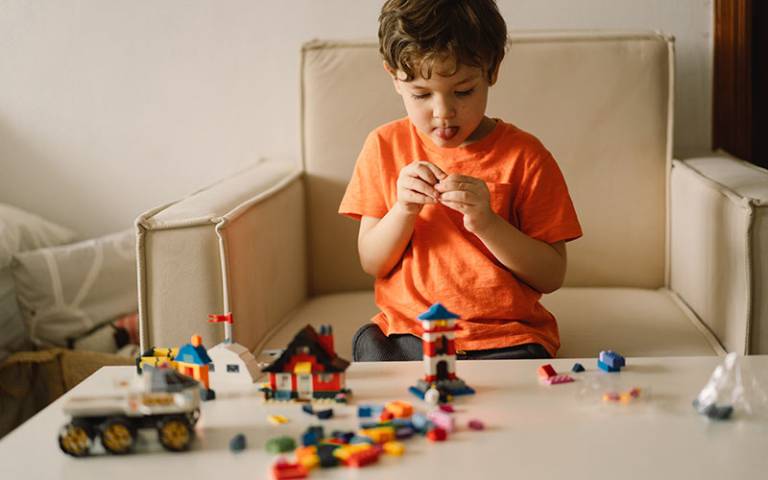Play gives children a sense of agency during difficult circumstances
23 February 2024
A new report from the Play Observatory project, led by Professor John Potter, illuminates the power of play to boost children’s agency, resilience and mental health, while helping them navigate disruption to their lives during the Covid-19 lockdowns.

The findings highlight the act of “placemaking”: children’s ability to create mediated third spaces in homes and neighbourhoods or hybrid, digital spaces. This indicates the extent of children’s resourcefulness and playfulness in response to the restrictions of the pandemic, when access to the wider world was limited.
The research, led by IOE, UCL’s Faculty of Education and Society, suggests that the act of placemaking was a safe and agentive way to explore concepts like separation and distance by physically making and inhabiting their own safe spaces – repurposing the domestic sphere.
This also created a collaborative environment, where children and their carers became designers of spaces in the changed circumstances of the pandemic, enabling a form of play that transformed hierarchies and gave children agency through placemaking.
The report was published as part of the Play Observatory project, which ran from October 2020 to March 2022 with funding from the Economic and Social Research Council (ESRC) as part of the UK Research and Innovation (UKRI) Rapid Response to COVID-19.
The project was undertaken with IOE researchers Dr Kate Cowan and Dr Michelle Cannon, Dr Valerio Signorelli (UCL Bartlett Centre for Advanced Spatial Analysis, CASA), and academics at the University of Sheffield, in partnership with the Young V&A, the Great Ormond Street Hospital and the British Library.
It aimed to investigate the evolution of children’s play practices during the pandemic to illuminate how children responded to lockdown restrictions and their changed circumstances.
The project also sought to raise the profile of children’s voices in recording their own experiences by collecting stories, thoughts and ephemera related to play via an online survey, garnering both national and international responses.
This culminated in a virtual exhibition curated with the Young V&A and the creation of an archive as a record of this “unique time,” a resource for future generations to explore. One of the films created by the children has also become part of the British Library’s collection.
Professor Potter says, “We are publishing more of the Play Observatory findings, and each time we write about it, we find new things to say.
“The contributions are so rich, and the skills of the teams in UCL and Sheffield are so inspiring that we will keep going with this for some time. This project was designed with present and future generations in mind, recording the lived experience of children during pandemic times and advocating for the importance of play in their wellbeing.”
Related links
- Read the findings: Children’s production of place and (third) space during Covid 19: Den building, filmmaking and the postdigital in the Play Observatory
- Read the feature in IOE Impact Stories: the Play Observatory
- Listen to a podcast with Professor John Potter: The ways we play: digital communication and creativity | RFTRW: S09E04
- Professor John Potter's research profile
Image
Анастасія Стягайло via Adobe Stock.
 Close
Close

